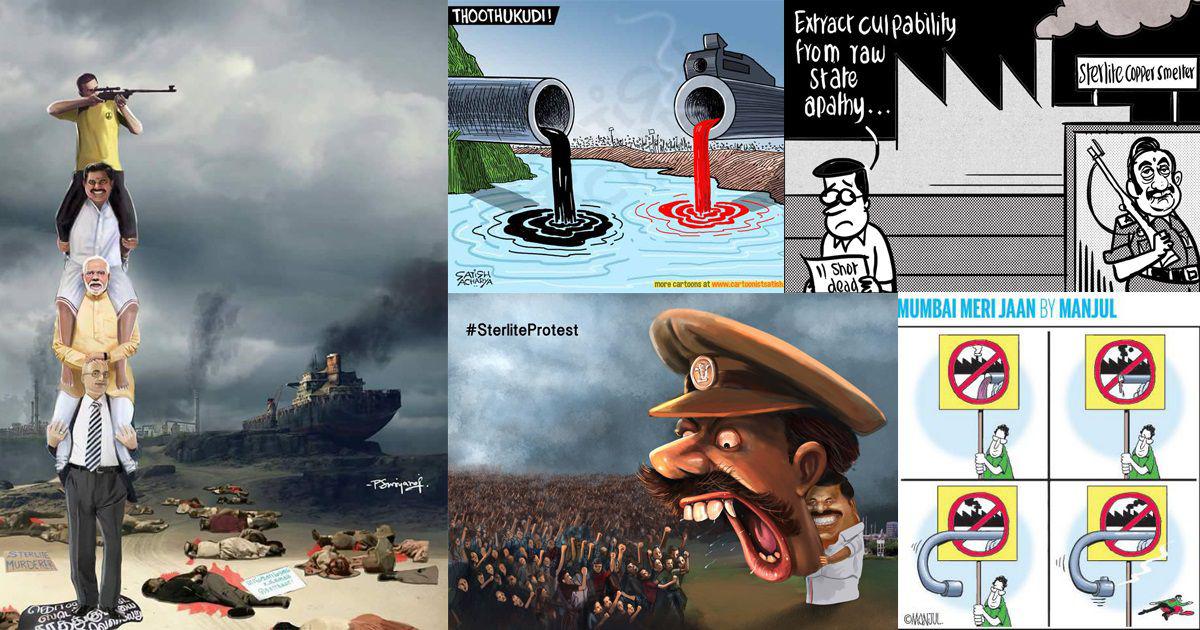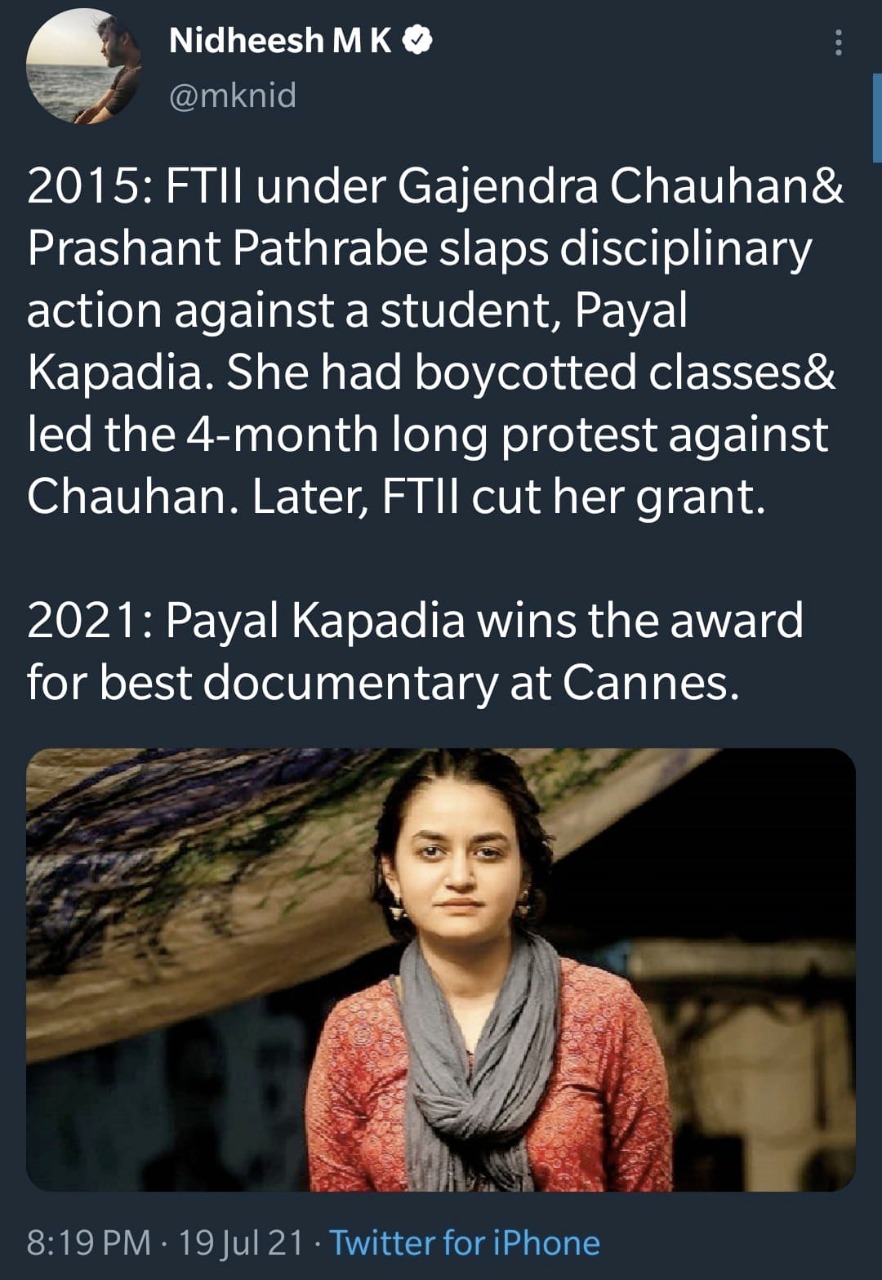Resistance & Protests
After violent crackdown on Thoothukudi protests, cartoonists take aim at police brutality https://scroll.in/article/880114/after-violent-crackdown-on-thoothukudi-protests-cartoonists-take-aim-at-police-brutality
Agitations against the expansion of a Sterlite Copper plant have rocked Tamil Nadu. Scroll Staff May 24, 2018 
Land, Guns, Caste, Woman: The Memoir of a Lapsed Revolutionary by Gita Ramaswamy, Code at CED Library: B A80 R3.
Navayana (April 2022)
Review: https://thewire.in/books/gita-ramaswamy-land-guns-caste-woman-memoir-review By Rohini Hensman. The problems that Gita fails to solve are ones that still plague us today: how to link up grassroots movements nationally and internationally to tackle issues that cannot be resolved locally. But her memoir provides us with an invaluable example of revolutionary activity based on the conception of socialism propagated by Marx and Engels, who believed that it was the working class as a whole which had to carry out the revolution.
https://www.youtube.com/watch?v=8O_AVoYw2CY Inter with Ram Manohar Reddy
https://www.youtube.com/watch?v=48Xxd9dJhwU Jerry Pinto
Sangnara village in Kutch, Gujarat, has been trying to save its forests from the wind energy companies for the past two years. Kutch has been designated as an important wind energy exploitation zone, and in the past few years 1000s of windmills have been put up by energy companies.
Sangnara village has organised a protest to stop Suzlon from erecting windmills in their sacred grove on the 6th of August 2021. They welcome support from all concerned citizens. -Yash - Let India Breathe
Gandhi's Ideas Against Use of Violence to Achieve Political Objectives Ring True Today https://thewire.in/politics/mahatma-gandhi-violence-protest-rally Neera Chandhoke: 2 Feb 2021
..All states are inherently coercive; all states are embodiments of violence. State sponsored violence has to be fought. Resistance to state power is legitimate provided that the strategy of the resistors does not mirror the violence of the state. Violence stamps the body politic with its cloven hoof, it reduces isolated acts of resistance to spectacle, it diminishes the political public to an audience, and it systematically erodes public ethics. If states cannot uphold a system of public ethics, the people must do so. They must take up the task of defending public ethics. In the process, we might conquer our own fatal tendency to inflict violence on each other.
Disavowing Violence: The Gandhian Way https://centreforpeacestudies.com/disavowing-violence-the-gandhian-way/ Gandhi’s rejection of violence moves to a negation of violence, a transcendence of violence, and the adoption of non-violence. Gandhi negated violence, because he saw it as incapable of bringing about substantive freedom, because it presupposes a flawed conception of the truth, and because it ultimately harms the perpetrator. The alternative to violence is, therefore, non-violence, which is a companion concept to Gandhi’s theory of the truth and swaraj.
We have to learn from Gandhi because we have been confronted with violence against our own people. Violence not only stalks relations between citizens and the state, but also relationships between citizens. How do we deal with this? It is time to reflect on what these everyday incidents of violence do to us. It is time to reclaim the space of non-violence that has been under relentless attack by mobs bent on lynching. They take the name of God Ram to kill, photograph, disseminate photographs of inhumanity on social media, and celebrate killings. Violence is spectacle, we are the consumers of these nauseating acts even if we do not want to.
GANDHI FOR STUDENT MOVEMENTS TODAY Ruchira Gupta https://centreforpeacestudies.com/gandhi-for-student-movements-today/ The first thing that a deeper reading of Gandhi teaches is that non-violence is not just civil disobedience or peaceful protest. It has to go hand in hand with constructive action. Gandhi matched each populist call for a negative action with a call for a positive action. It was what he called “constructive programming.”..
Every time students and women protest what happens at the top, there could also be a call for constructive action at the bottom... North-east Delhi, where there was targeted violence against Muslims, is also one of the dirtiest places to live in. What if students got together to clean one dirty stretch, recycle the garbage and create a park for little children? Shelters for the homeless are often so dirty and dangerous that the street is preferable.Neighborhoods or corporations or colleges could organized their members to clean and monitor a shelter for a few hours each week. During Covid, children were cut off from education, with no access to online education. What if each student began to look for one such child in their neighborhood and start teaching them?
Or take this example" http://ccf.brmworld.org/
Cannes 2021: Filmmaker Payal Kapadia Wins Best Documentary for Her Film ‘A Night of Knowing Nothing’ . The Mumbai-based filmmaker’s documentary bagged the award in a category where 28 documentaries were presented across various festival sections.
A 'Night of Knowing Nothing' was screened as part of the Directors’ Fortnight, a section that runs parallel to the festival. https://www.indiatimes.com/entertainment/celebs/payal-kapadias-a-night-of-knowing-nothing-wins-best-documentary-545237.html

